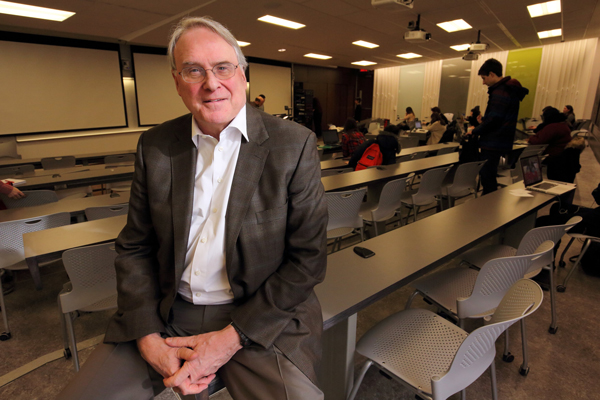
By James Martin
Teaching and Learning Services (TLS) has been taking the pulse of McGill’s teaching community — and they’ve been hearing a lot of the same things. They interviewed more than 50 instructors, and conducted consultations, workshops and retreats. Whether the subject is chemistry or Chaucer, everyone they spoke to had admirable, lofty aspirations for what they’d like their undergraduate students to take away from their classes, such as: critical thinking, an ability to collaborate and communicate, empathy, the skills to make evidence-based decisions. The challenge is how to achieve those goals.
On December 11, 2015, TLS will host “Teaching What’s Important: Educating Students for Today and Tomorrow,” a day-long symposium focused on developing strategies for making these aspirations come true. The symposium is free to all McGill instructors. Registration is now open.
“It’s both a celebration of the work that is already being done,” says Marcy Slapcoff, Senior Academic Associate, Teaching and Learning Services, “and a way for instructors to develop new strategies for translating their aspirations for student learning into real educational experiences.”

The symposium, which will be held in the New Residence Hall Ballroom, will be divided into two parts: inspiration and application. The day will begin with a panel discussion between professor Elena Bennett (Natural Resource Sciences, McGill School of Environment), instructor Ken Dryden (McGill Institute for the Study of Canada) and undergraduate Alan Chen, who is a U3 student in the Interfaculty Program in Sustainability, Science and Society. The panelists will share their thoughts on a big question: “What’s most important for undergraduate students to learn at McGill?”
The balance of the morning will be devoted to hearing success stories. Five McGill instructors — Caroline Begg (Plant Science), Marta Cerruti (Mining and Materials Engineering), André Costopoulos (Anthropology), Patricia Hewlin (Management) and Kwong Li (Dentistry) — and their students will share concrete examples of meaningful instructional experiences they’ve had, inside the classroom and outside. (“Outside” could be anything from a student doing applied research, to doing site visits to see theory in action, to working in the mobile dentistry clinic.) “It could include something as simple as asking a certain kind of question, which sparked an exceptional conversation,” says Slapcoff, “or a writing exercise in class that gives students time to think through complex problems.”
“We often hear ‘But I can’t do something like this at McGill,’” says Slapcoff, who hopes that hearing colleagues’ testimonials will burst preconceived notions about what is, or isn’t, possible — and give instructors permission to try different things for themselves. “There are many instructors who are experimenting with new approaches and helping their students to become critical thinkers and engaged and active citizens.”
The afternoon will be devoted to a teaching lab. TLS will provide guidelines for developing meaningful activities and assignments, which participants will use to experiment with creating their own strategies. “These strategies could be low-stakes activities that take a few minutes to complete in-class, or more complex assignments,” says Slapcoff, who notes that peer feedback and dialogue, particularly across disciplines, will be an important part of the exercise.
Participants can register for separate sessions or the entire day. Lunch will be provided.
